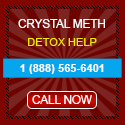
Massachusetts has a vast number of resources available for the treatment of addictions to drugs and alcohol. In this small state, 365 addiction treatment programs are available. The state of Massachusetts has been very proactive in this issue by using drug seizure money to open rehab facilities in many locations around the state. In spite of this, there is still a large drug abuse problem in the state. Areas of Boston, Lawrence, Lowell, and Lynn, Massachusetts, are the centers of drug trafficking and abuse there. Alcoholism is also a significant problem, particularly among older adults.
Drug and Alcohol Rehabilitation in Massachusetts
Getting proper treatment for drug abuse or alcoholism is a long-term effort that usually requires a number of different approaches for each person. The first step to recovery is a detox program at an addiction treatment center. However, there is more work to be done after detox. Physical detox only helps to clears the drugs and alcohol out of an addict’s body.
A comprehensive treatment program through a rehab facility is the best method we have for treating drug abuse and alcoholism. This usually requires care at an inpatient treatment program. A little research into the options available in various parts of Massachusetts will ensure that an individual finds the right care for his or her situation.
 Some of the types of rehabilitation care offered in this state are residential treatment, support groups, transitional support services, intervention, crisis centers, counseling, alternative medicines, and medical detox. Programs may be either inpatient or outpatient, with the first option being regarded as much more successful by experts. The length of time that a patient needs to spend in treatment will depend upon the severity of his or her addiction. It usually cannot be determined prior to beginning a treatment program.
Some of the types of rehabilitation care offered in this state are residential treatment, support groups, transitional support services, intervention, crisis centers, counseling, alternative medicines, and medical detox. Programs may be either inpatient or outpatient, with the first option being regarded as much more successful by experts. The length of time that a patient needs to spend in treatment will depend upon the severity of his or her addiction. It usually cannot be determined prior to beginning a treatment program.
Making a Successful Recovery in Massachusetts
After a patient leaves an addiction treatment program and returns to normal life, there are many opportunities for relapse. It requires a great deal of motivation for the addict to avoid falling into old patterns and returning to old habits. For example, going back to the places that remind the addict of drugs or alcohol can trigger a relapse. Associating with old friends who are still involved in drug abuse and alcoholism will have the same effect.
Many addiction treatment centers offer aftercare services of ongoing counseling. This allows them to check up on patients and help them stay on the right path. These services generally increase the success rate of recovery. Addicts need help learning how to live a productive life. Excessive alcohol and drug use has many affects on the brain’s functioning. Issues such as self-esteem, getting and holding a job, and creating healthy relationships with other people all require work.
Choosing the correct program of drug rehabilitation or alcohol treatment is essential for success. However, the addict’s motivation to overcome these problems and live a productive will ultimately determine whether a relapse occurs. Counselors and other methods of help can only aid in the recovery, they cannot force it upon someone who doesn’t want it.
Massachusetts Addiction Support |
|
| Attleboro – (508) 858-5466 | Marlboro – (508) 377-4614 |
| Boston – (617) 307-4464 | New Bedford – (508) 630-9505 |
| Brighton – (617) 206-3810 | Peabody – (978) 233-0639 |
| Brocton – (508) 858-5322 | Peabody – (978) 384-1201 |
| Fitchburg – (978) 384-1206 | Plymouth – (508) 689-7703 |
| Gardner – (978) 384-1205 | Quincy – (617) 250-8519 |
| Holyoke – (413) 650-5603 | Springfield – (413) 306-3232 |
| Lawrence – (978) 233-2133 | Sterling – (978) 384-1148 |
| Lynn – (781) 780-5658 | Westfield – (413) 485-7002 |
| Malden – (781) 780-5669 | Woburn – (781) 780-5671 |

